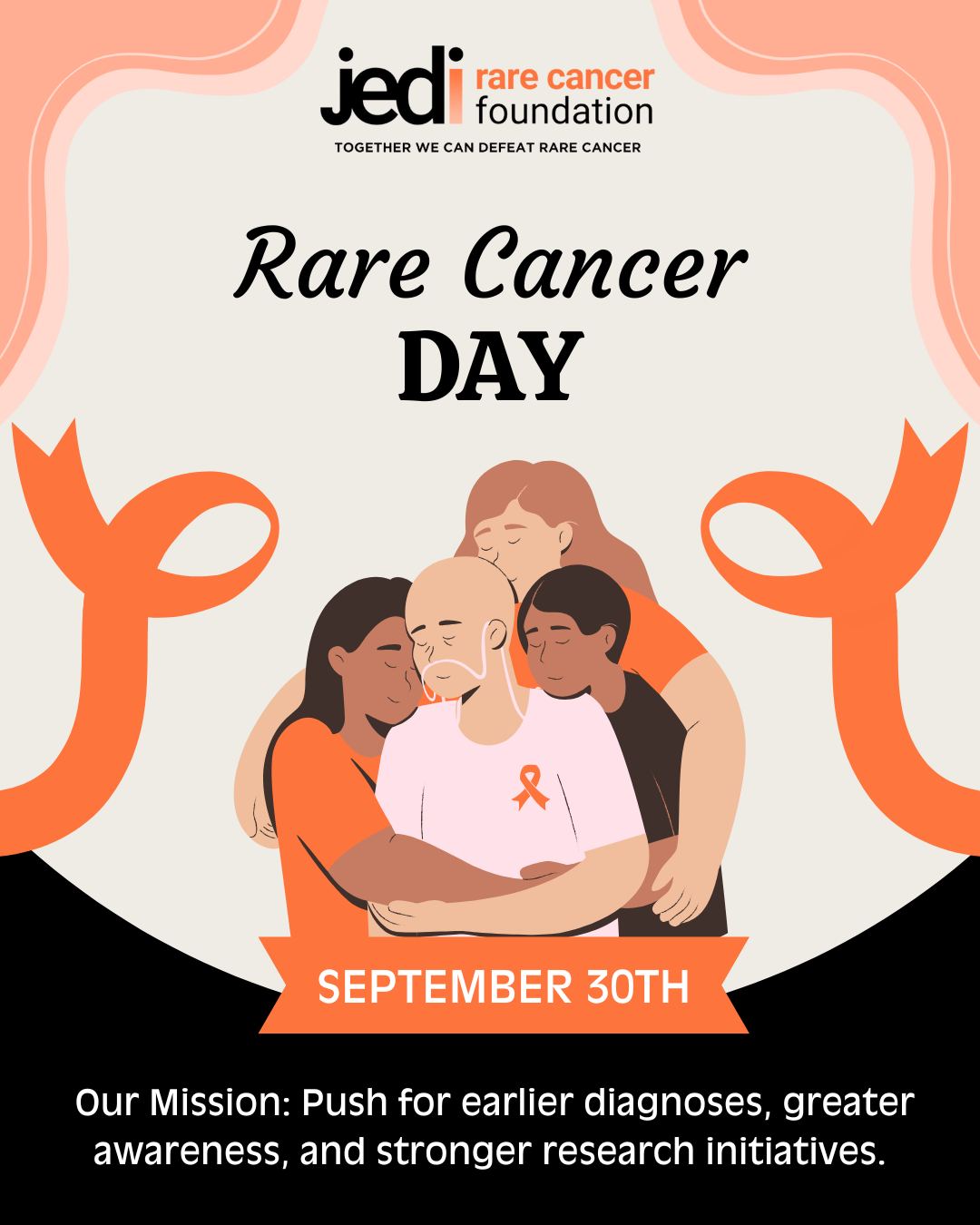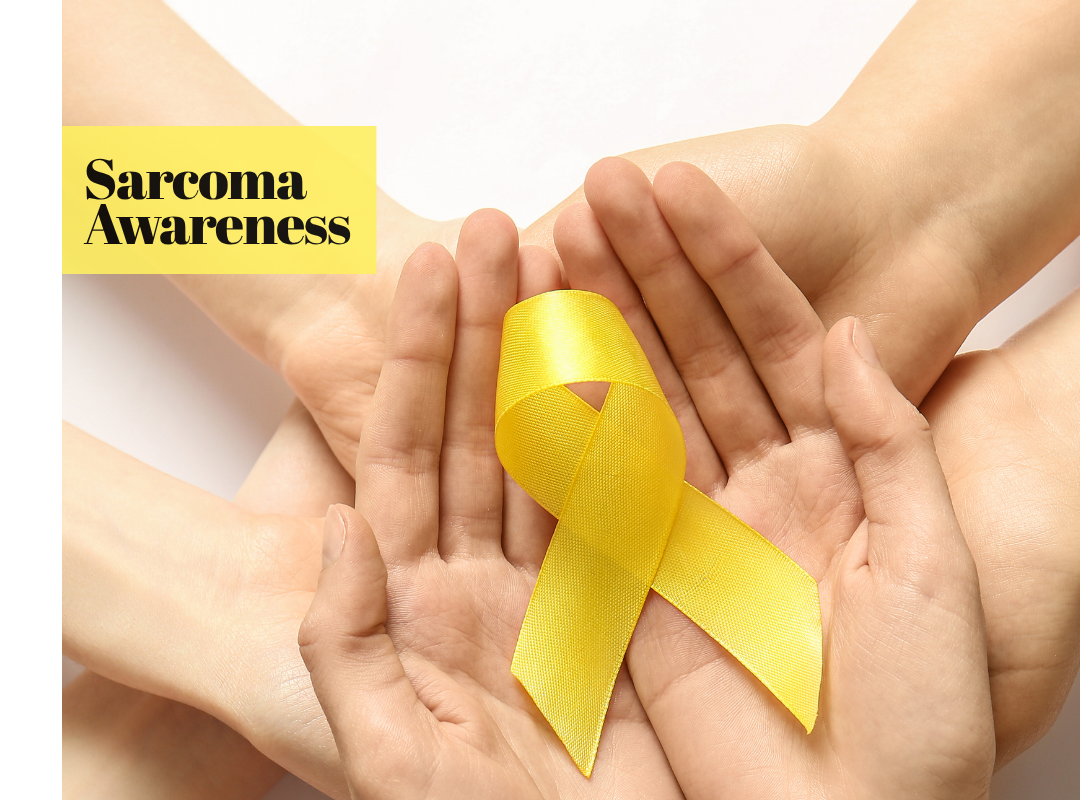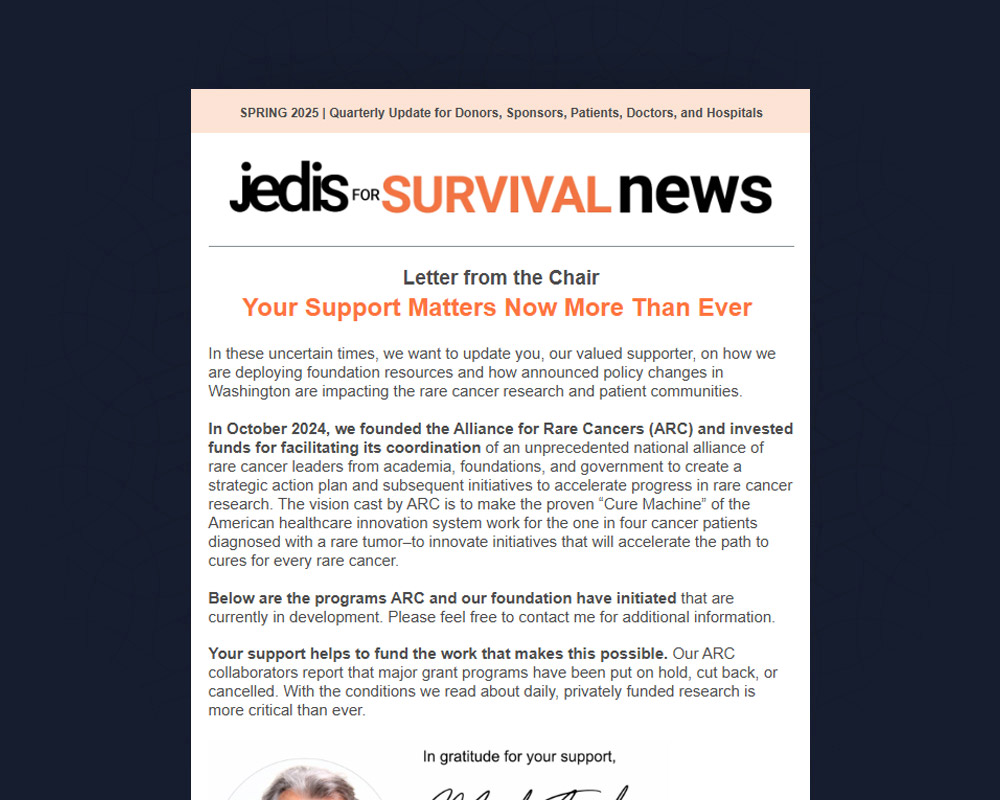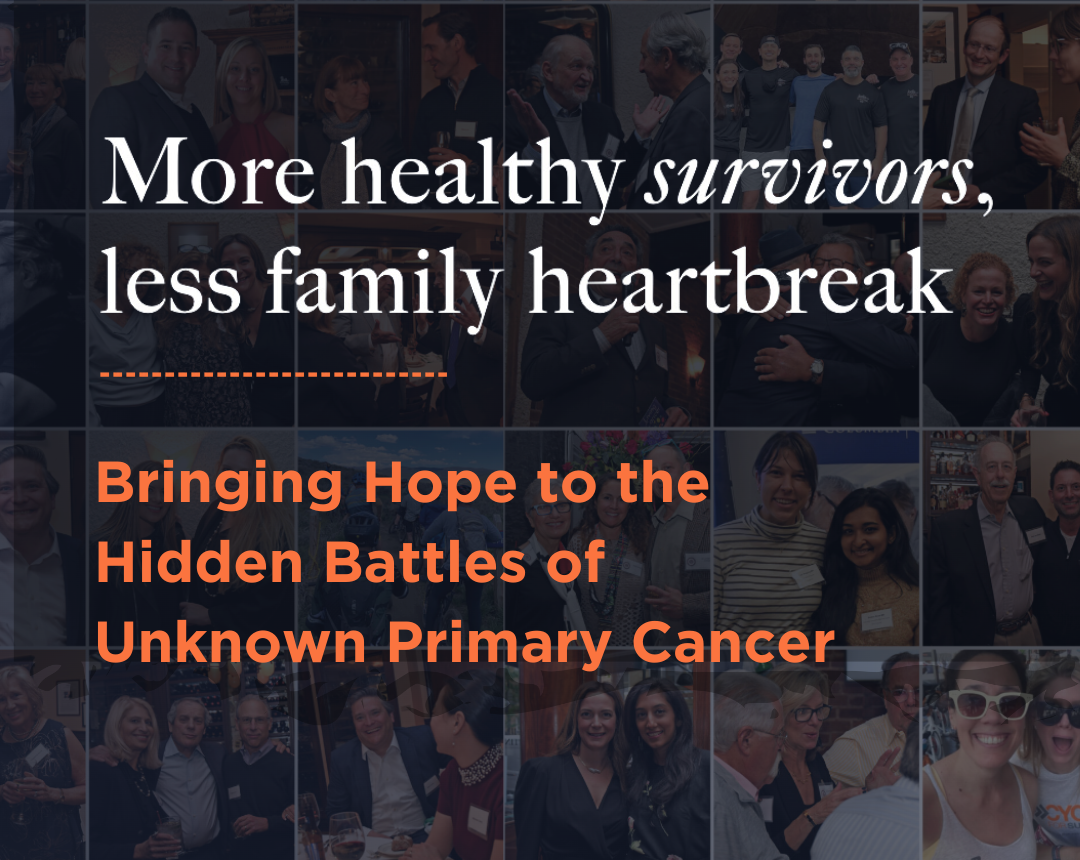

At any given time, 50,000 people are fighting against sarcoma. That’s why the Jedi Rare Cancer Foundation is honoring Sarcoma Awareness Month, an annual observance that takes place every July. It’s dedicated to increasing public understanding and support for sarcoma, a rare and often overlooked group of cancers that begin in the bones and soft tissues such as muscle, fat, blood vessels, tendons, and nerves.
Here we share important insights from Dr. Brian Van Tine, the Sarcoma Program Director, Co-Director of the Phase 2 Program, and Co-Director of the Adolescent and Young Adult Program at the Alvin J. Siteman Cancer Center. His unparalleled expertise can help the world gain a greater understanding of the importance of awareness around these cancers.
“I made this patient a promise that I would do something about her disease.” – Dr. Brian Van Tine
In 2008, there were few actual non-pediatric adult sarcoma researchers. Dr. Van Tine initially had planned to be a doctor who studied breast cancer. But on the last day of his clinical fellowship, a woman appeared at 5 pm on a Friday. She had a rhabdomyosarcoma on her heart, and she was pregnant.
Dr. Van Tine stuck to his promise. It started his career in sarcoma research, and in fact, the entire sarcoma program at Washington University began from that one night. Treating her was a long journey, but they fought alongside her throughout her entire pregnancy.
It was worth it, because she had her child, and named him Cole—short for miracle.
Sarcoma is often a misunderstood type of cancer. Most people think it’s parallel to a specific cancer. But rather, it’s parallel to the word carcinoma. Under carcinoma, there are many cancers, including:
About 1% of the time, a cancer may originate from the mesenchymal lineage, which means bone, muscle, fat, cartilage, anything that would connect your body and hold it together. These types of cancers are termed sarcomas; there are common sarcomas, such as such as a gastrointestinal stromal tumor (GIST), which may have 5,000 cases a year, and ultra-rare tumors like myoepithelial carcinoma, which may only have five or ten.
Overall, there is a spectrum of 175 different sarcomas that are reflective of breast cancer, lung cancer, colon cancer, etc., all with subtypes. This is why sarcoma centers have been established, so that patients with a certain type of sarcoma can see a doctor who is an expert. When you go to a sarcoma center, the rare tumor is not rare to the doctor.
“Rare cancer is 25% of all cancers. Rare is not so rare.” – Dr. Brian Van Tine
Dr. Van Tine is actively working with rare cancer advocates and research organizations to amplify the work conducted in his lab and by colleagues nationwide. Through the Alliance for Rare Cancers he is helping to connect rare cancer groups that can benefit from a collaborative approach, rather than tackling one rare tumor type at a time. When it comes to rare, together we can achieve more.
When Dr. Van Tine first started back in 2008, the options for sarcoma patients were three lines of medication or hospice. Now, there are at least nine drugs, with many more on the way. There are a variety of treatments, including oral or IV infusions, and even T-Cell therapies.
“The Alliance for Rare Cancers is a beautiful dream that is bringing together big ideas and big money with a novel idea, which is to go after rare tumors as a group.” – Dr. Brian Van Tine
In November 2023, a group of 35 rare cancer-focused experts convened a workshop to examine the issues and opportunities for rare cancer. The Alliance for Rare Cancers was a result of that meeting.
Dr. Van Tine compared ARC to Noah’s Ark, in that every type of rare cancer had at least two experts on the ship. This way, they can find commonalities that the team can harness to find new treatments. ARC can help bring in the funding to accelerate therapeutics and discovery.
AI may help further with cancer research in the future, but the technology isn’t quite there yet. Right now, with assistance from ARC, researchers are bringing together rare tumor tissues and building tumor banks, then asking questions, coming up with ideas, and employing AI where possible. Dr. Van Tine is not sure AI is ready for prime time or to do anything in cancer research that’s meaningful because most scientific discoveries are happy accidents.
At the end of the day, the goal of Jedi and ARC is to invest in science and build a community of systemic support to accelerate breakthroughs in rare cancer research.
You, too, can support rare cancer research. Here are three actionable steps you can take:
Help us fight sarcoma and spread awareness of the disease by donating today or sharing about Sarcoma Awareness Month on social media.



Your generous donation has the power to save lives.
Together, we will END rare cancer.
Comment, Like, Share & Follow Us on Social Media.
Together, we can take action against rare cancer and help save lives.

The Jed Ian Taxel Foundation for Rare Cancer Research | P.O. Box 683501 Park City, Utah 84068
The Jed Ian Taxel Foundation for Rare Cancer Research, Inc. is a 501 (C)(3) Non-Profit Organization, accepting Tax Deductible donations from individuals, corporations, family-advised funds and foundations. Federal Tax ID 86-2610819
DISCLAIMER: THIS WEBSITE DOES NOT PROVIDE MEDICAL ADVICE The information, including but not limited to, text, graphics, images and other material contained on this website are for informational purposes only. No material on this site is intended to be a substitute for professional medical advice, diagnosis or treatment. Always seek the advice of your physician or other qualified health care provider with any questions you may have regarding a medical condition or treatment and before undertaking a new health care regimen, and never disregard professional medical advice or delay in seeking it because of something you have read on this website.